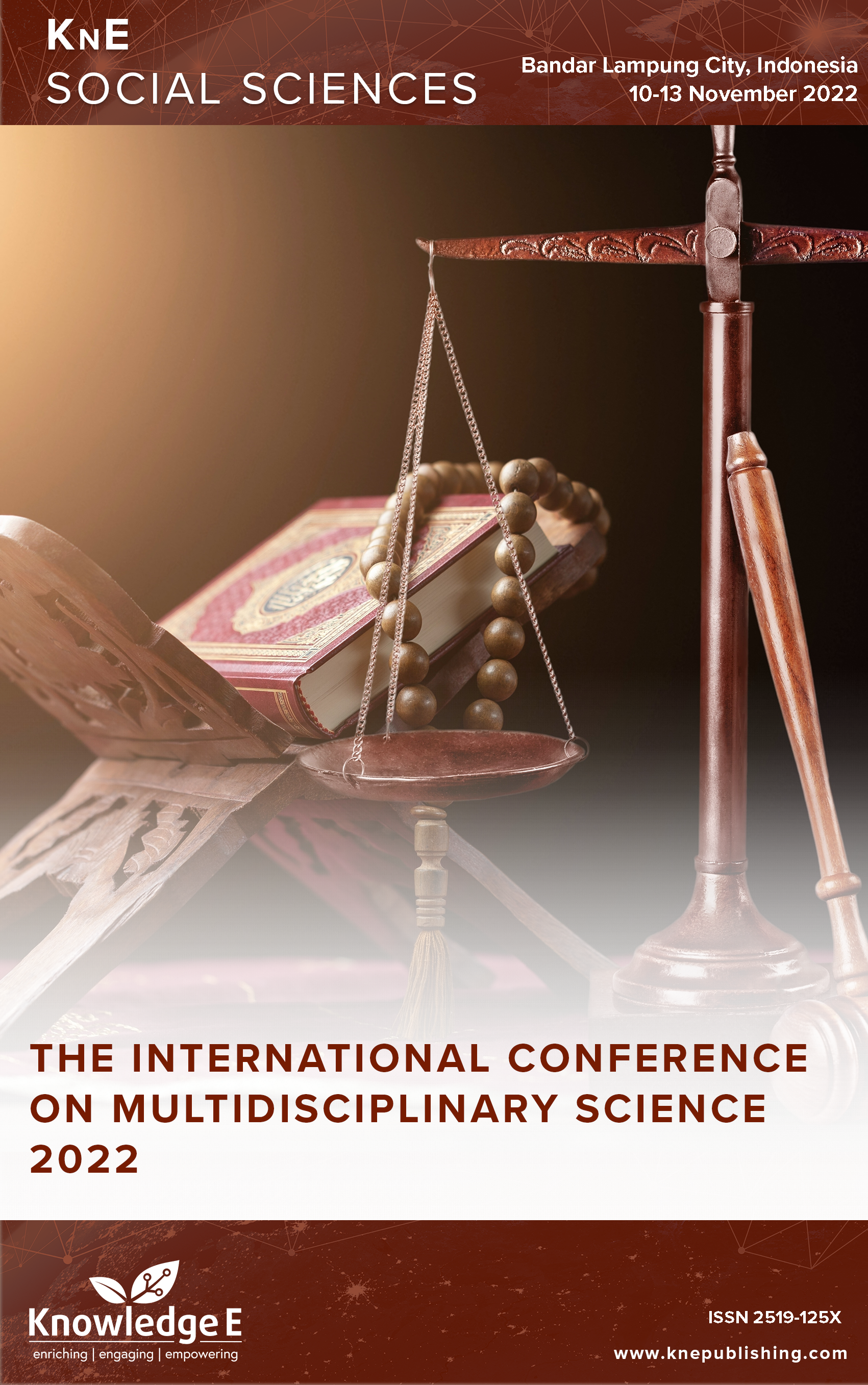The Role of Al-Ikhlas Park Reading in The Culturing of Social-Religious Behavior in Scavenger Children
DOI:
https://doi.org/10.18502/kss.v8i16.14077Abstract
The Al-Ikhlas public reading park is a place for scavenger children to develop their potential, open up insights, gain experience, and grow self-confidence. This motivates and supports children to learn for free, especially scavengers who are less skilled. This study aimed to examine the socio-religious behavior of scavenger children in the Al-Ikhlas public reading park in TPST Bantar Gebang Bekasi, West Java. It aims to examine the role of the public reading gardens in improving the socio-religious behavior of scavenger children at the park. This researcher uses a field research method, and a qualitative method using a sociological approach. The results of this study contain the role of the Al-Ikhlas public reading garden in the effort of instilling religious social behavior in scavenger children. Efforts to inculcate socio-religious behavior in the development of religiosity include learning to pray by explaining what prayer is, how important prayer is in daily life, introducing prayer readings, learning to fast, and breaking the fast together starting with a cult from a public reading garden. Similarly, reciting the Koran by learning to read iqro, Al-quran, juz-amma, and muroja’ah, as well as the commemoration of Islamic holidays are ways of instilling socio-religious behavior.
Keywords: Social Religious Behavior, Scavenger Children, Education
References
[2] Well done Satria Ernanto. “Child Labor at a Garbage Disposal Site (Descriptive Study of the Life of Child Scavengers at the Benowo Final Shelter, Surabaya).”. Unair Journal of Sociology Study Program Department of Sociology. 2014;III(III):1–13.
[3] Arifin BS. Psychology of Religion. Bandung: CV Pustaka Setia; 2008.
[4] Ancok D. Islamic Psychology. Yogyakarta: Student Library; 2011.
[5] Hamid A. Moral Science. Bandung: Copyright Library; 2009.
[6] Hidayati T. Parents’ Parenting Style in Instilling Moral Values in Children of Scavenger Families in Winong Village, Bawang District, Banjarnegara Regency (Case Study of Scavenger Families). Diklus: Journal of Education Outside School. 2019;1(1):1–19.
[7] Intan N, Subrianto P. Inculcation of Moral Values in Scavenger Children at Bintara Jaya IV Bekasi Through Storytelling. Journal of Ikraith Abdimas. 2021;4(31):1-5.
[8] Hassan I. Main Materials of Research Methodology and Its Applications. Jakarta: Ghalia Indonesia; 2020.
[9] James P. Chaplin Herri Zan Pieter Namora Lamongga Lubis. Introduction to Psychology for Midwifery. Printing 1. Jakarta: Kencana Prenada Media Group; 2010.
[10] Janah HA, Fitria N. Scavenger Family Parenting Style in the Formation of Early Childhood Social Behavior [AUDHI]. Journal of Integrative Holistic Early Childhood. 2021;3(2):87.
[11] Lexy j. meow. Qualitative Research Methodology. Bandung: PT Juvenile Rosdakarya; 1990.
[12] Muhardi. “The Contribution of Education in Improving the Quality of the Indonesian Nation.”. Pulpit. 2004;20(4):478–92.
[13] Atmasasmita R. Child/Youth Delinquency Problem: Juridical. London: Socio, Criminology; 1984.
[14] Saleh S, Akhir M, Sisma B. Exploitation of child scavenger workers. Journal of Sociology of Education. 2019;6(1):10–20.
[15] Soeparno K. Social Psychology: The Passion of Psychology. Psychol Bull. 2011;19(2):16–28.

